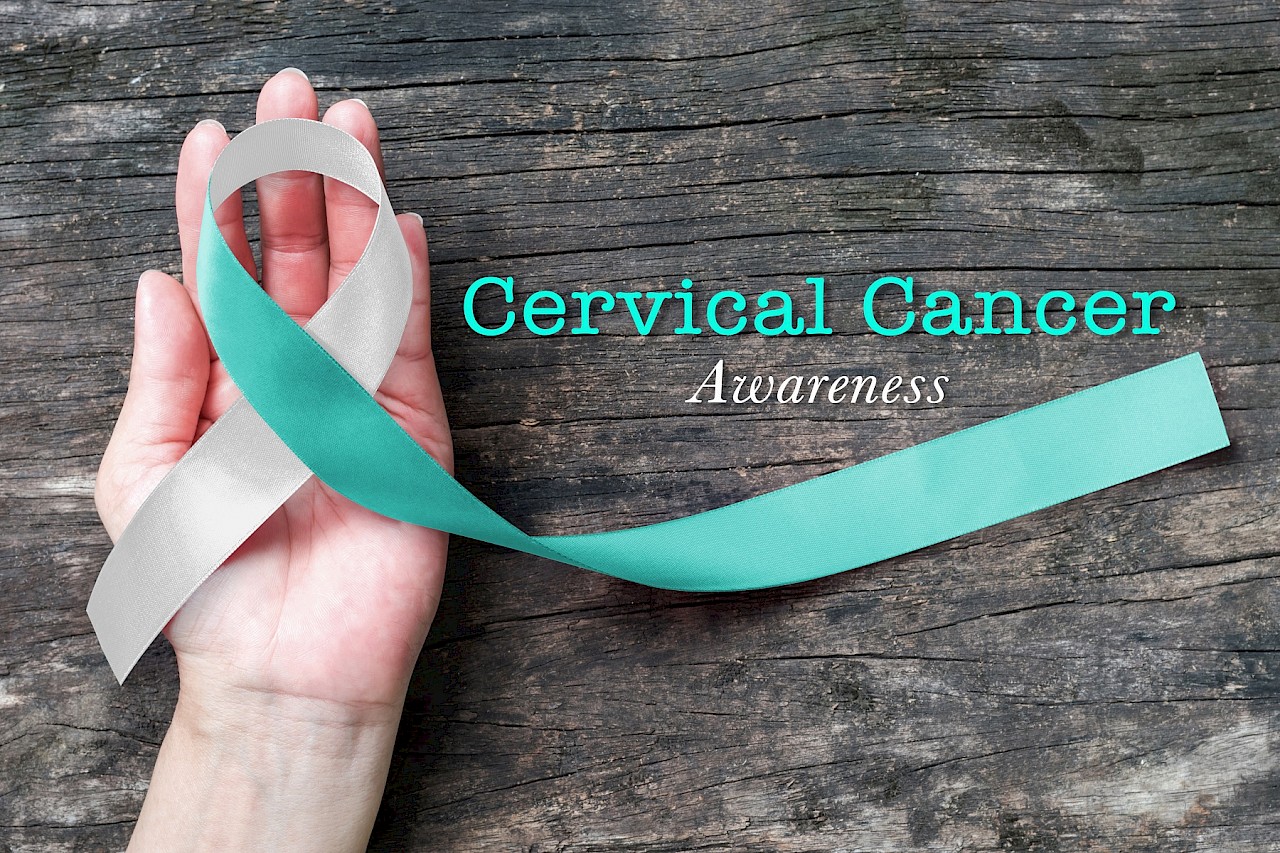January 2019
January is cervical cancer awareness month, a great time to learn how to prevent cervical cancer for yourself and those you love. With many types of cancer, a healthy lifestyle can reduce the risk of cancer, but with cervical cancer we can almost guarantee prevention with these simple steps.
- Get the HPV vaccine
- Do all you can to boost your immune system (including not smoking)
- Practice safe sex
Cervical cancer is caused by the human papillomavirus (HPV), a sexually transmitted infection that also causes genital warts and cancers of the vulva, anus, penis and throat. With the Gardasil 9 vaccine, nine strains of the virus are rendered harmless.
Until recently, the vaccine was only approved for people under the age of 26, and the medical community focused primarily on immunizing people before they became sexually active. As of October, 2018, the U.S. Food and Drug Administration approved the vaccine for adults up to age 45. Studies show that although almost every sexually active adult has been infected by at least one HPV strain, the vaccine given later in life prevents infection by the other strains.
The reason HPV-related cancers are not more prevalent is because 90 percent of healthy adults who contract the virus are able to clear it within a year or two of the initial infection. Those who do not clear it still often have excellent prognoses, because cervical cancer is a slow-growing and highly treatable cancer.
This is why it breaks my heart that an estimated 4,000+ women died from cervical cancer in 2018. As a women’s health nurse practitioner, I remind my patients to get annual well-woman exams and to be sure they get pap smears every three years.
As medical knowledge expands, screening and treatment recommendations change. Women used to get paps every year from the time they became sexually active until they died. Now we know that HPV causes cervical cancer, and we know that most people will clear the virus before it does any long-term damage, so paps are recommended every three years from the age of 21 through the age of 65 unless there are signs of cancer.
However, women should still see their medical provider every year. It’s an important time to take stock and identify other problems before they progress. During a well-woman exam, I check in with patients on their physical and emotional health. I ask about whether they’re facing domestic violence, whether they feel safe at home. I ask about whether they’re experiencing pain that interferes with having sex because there are treatments to address this. I ask how they’re sleeping, eating, exercising, and feeling. I ask about their menstrual cycle. I examine their bodies—breasts, vagina, uterus and ovaries to make sure their reproductive organs are healthy. I order mammograms to help diagnose breast cancer before it can progress. Once women are no longer of childbearing age, we begin discussing menopause and all the changes that come with it.
If you haven’t seen your doctor, certified nurse midwife, or nurse practitioner within the past year or so, please make an appointment. We are here to help keep you healthy and enjoying life. Knowledge is power. We want to empower you.
Carolyn Wyatt is a women’s health nurse practitioner at Care for Her, a department of MCHC Health Centers, a local, non-profit, federally qualified health center offering medical, dental and behavioral health care to people in Lake and Mendocino Counties.

 MyChart Login
MyChart Login

